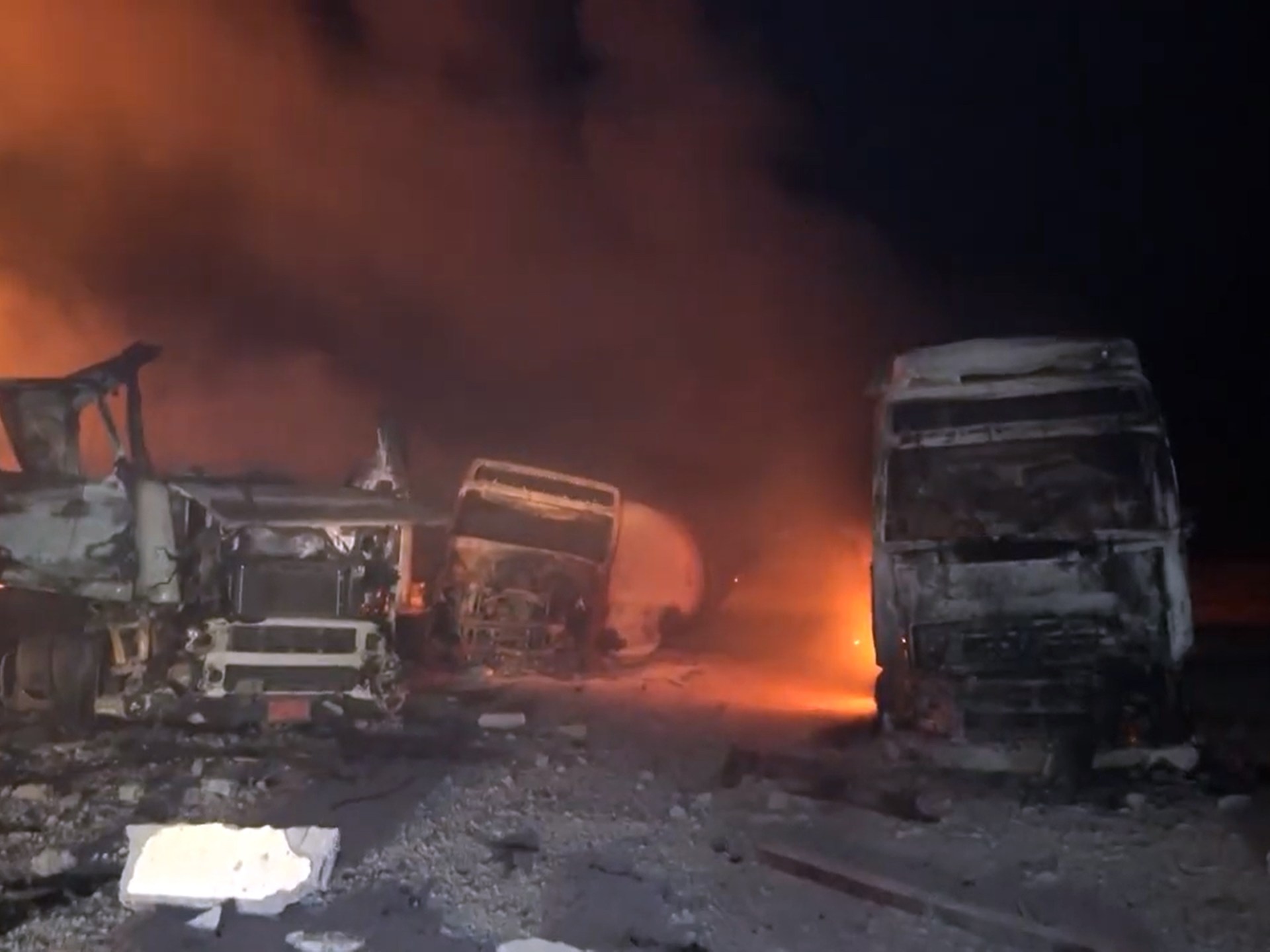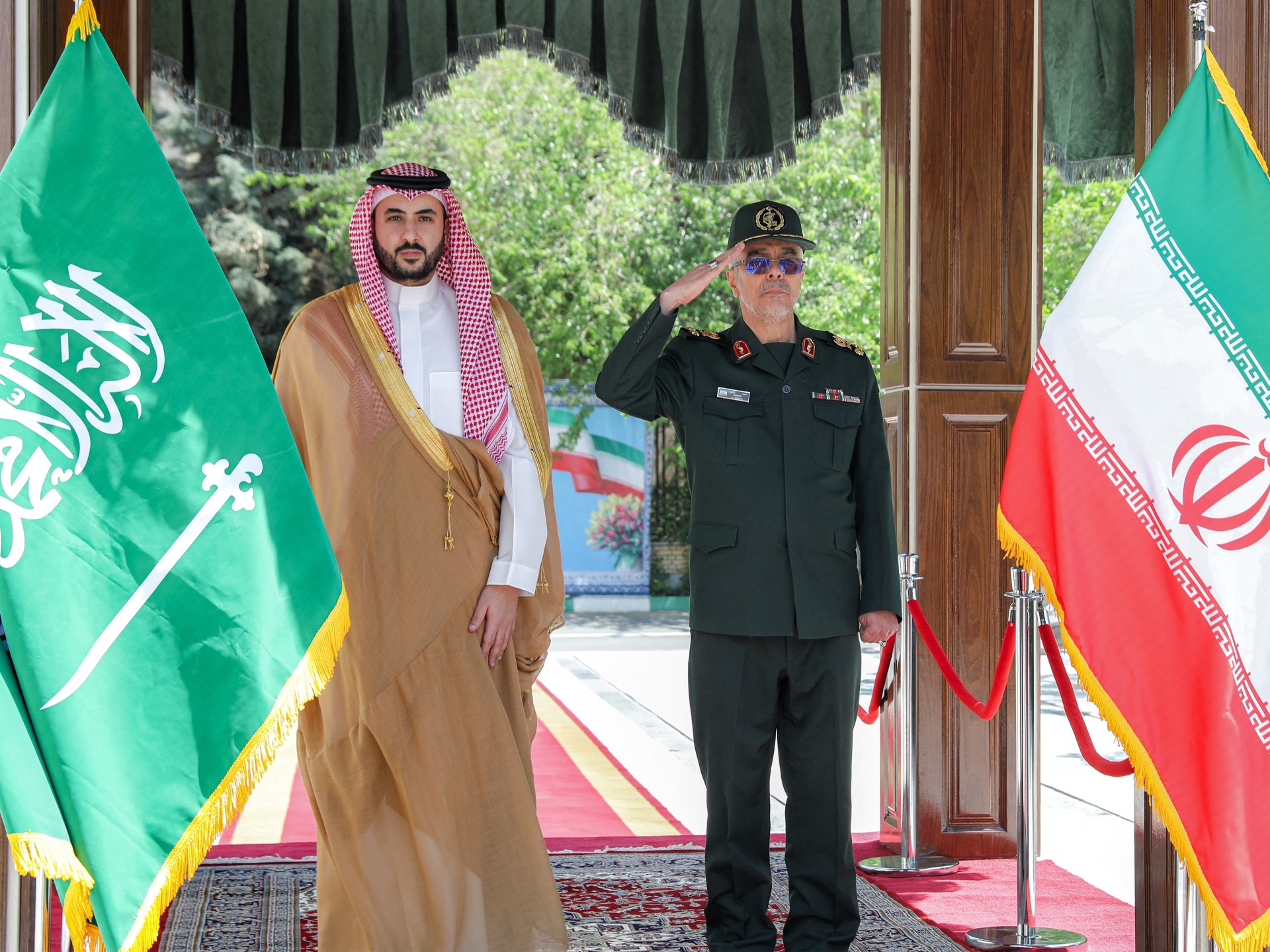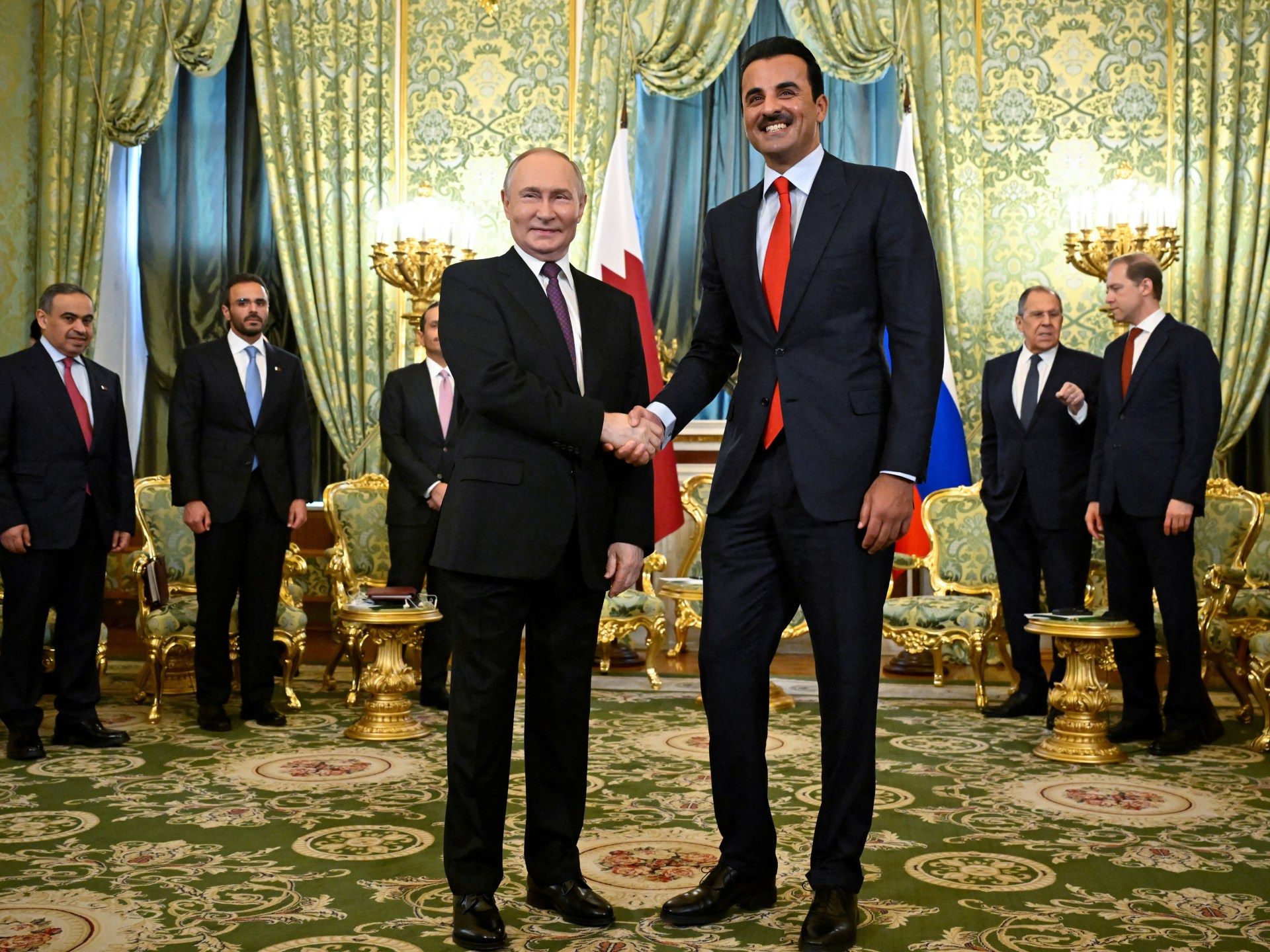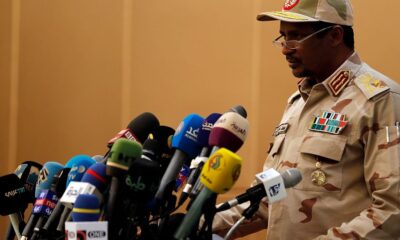Middle East
Unpacking Israel’s war on international humanitarian law | Israel-Palestine conflict News
On March 24, Israel struck a car in northern Gaza and killed Al Jazeera correspondent Hossam Shabat.
The 23-year-old is one of countless civilians – men, women and children – Israel has killed since launching what legal scholars describe as a “genocidal” war on Gaza.
Israel often justifies its killings by claiming that the targets are people sympathetic or affiliated with Hamas or other armed factions. This was the justification given for killing Shabat.
Israel also regularly destroys entire neighbourhoods and buildings, killing dozens – often hundreds – at a time, ostensibly to target a single Hamas operative.
For years, Israel has tried to justify these practices by employing lawyers to create shadowy quasi-legal concepts in the hope of establishing new, dangerous precedents, according to legal scholars and experts.
However, legal scholars told Al Jazeera that neither so-called “targeted killings” nor disproportionate attacks against civilians have any grounding in international law.
“Is there any semblance of law or legal justification for the war tactics Israel is using in Gaza? The simple answer is no. There isn’t,” said Heidi Matthews, assistant professor of law at York University in Toronto, Canada.
Setting precedents
On September 28, 2000, Palestinians across the occupied West Bank and Gaza began demonstrating against Israel’s ever-entrenching occupation in what became known as the second Intifada.
Israel’s repression of the Intifada quickly prompted Palestinians to mobilise and fight back.
Over the next five years, Israel launched what it named “targeted killings”, assassinating unarmed Palestinians.
Israel claimed that these targets could pose a threat to Israelis in the future because of their alleged membership in an armed faction.
“Israel … strips protection from civilians based on their views or perspectives,” said Noor Kilzi, a researcher with Legal Agenda, a nonprofit in Lebanon that advocates for legal reform and human rights in the Middle East.

Israel’s concept of targeted killings laid out a blueprint which the United States adapted during its “war on terror”, analysts told Al Jazeera.
“[In the early 2000s] Israel and the US changed their legal doctrines and implemented that as part of their military dogma,” York University’s Matthews told Al Jazeera.
“When it came to distinguishing between civilians and combatants… the US and Israel began to view [anyone as a target] based on their membership to a group,” she added.
According to the International Committee of the Red Cross, a person is only a legitimate target if they are directly engaged in armed combat at the time they are killed.
This means that suspected membership in an armed group is not a sufficient basis to assassinate someone.
Leiber’s legacy?
Throughout Israel’s war on Gaza, it has routinely dropped 2,000lb (900kg) bombs in densely populated residential areas, as well as systematically targeted schools, hospitals and displacement shelters.
Israeli officials justify these attacks by claiming that Israel is fighting a “just war” against barbarians. As a result, the ostensible goal of destroying Hamas outweighs minimising civilian casualties.
This is rooted partly in the philosophy of Francis Leiber, a 19th-century German American military theorist, who was tasked with setting out the “rules of conduct” for Unionist soldiers fighting the Confederates in the US Civil War.
He argued that some wars are vital to the moral progress of civilised nations and require a quick victory, which can only be achieved using tactics that will likely cause huge civilian casualties.
“Leiber basically said that whatever is militarily necessary to carry out war is legal,” Alonso Gurmendi Dunkelberg, a legal scholar at the London School of Economics, told Al Jazeera.
This terrifying reasoning is blatantly at odds with international norms and laws, Gurmendi Dunkelberg added.
“He believed in killing as many people as you can, so that you finish the job quickly. He believed that was more humane than trying to protect people to the point that the war drags on for say 15 years,” he said.
Since the beginning of Israel’s war on Gaza, its spokespeople have made similar arguments.
Mark Regev, an adviser to Israeli Prime Minister Benjamin Netanyahu, said the goal was to “get the [war] done quicker” when asked by PBS about why Israel had dropped 6,000 bombs in the first six days of attacks on the besieged enclave.
Then spokesperson for the Israeli army, Daniel Hagari, also admitted during the first days of the war that the emphasis in Gaza was on “damage and not accuracy”.

Destroying the system
In November 2024, the International Criminal Court (ICC) approved two arrest warrants for Netanyahu and his then-Defence Minister Yoav Gallant – accused of using starvation as a weapon of war and deliberately attacking civilians in Gaza.
An earlier ruling by the International Court of Justice found that Palestinians in Gaza faced a real risk of genocide due to Israel’s war practices.
The rulings by the ICC and ICJ add weight to the argument that Israel has failed in trying to legally justify its war practices, which likely amount to multiple war crimes, crimes against humanity and even genocide.
As a result, Israel and its western allies are now trying to sabotage the very institutions that were created to uphold international law and prosecute perpetrators of atrocities, said Nadim Khoury, former director at Human Rights Watch and the founder of the Arab Reform Initiative think tank.
“Israel has clearly hit the limit of what they can get away with by using legal arguments. Now, they’re just acting with total impunity to undermine the institutions trying to enforce international laws,” he told Al Jazeera.
Several legal scholars and experts expressed dismay that Netanyahu may be able to visit countries in Europe that are parties to the Rome Statute, the legal framework underpinning the ICC.
Countries such as Hungary, Belgium and France have said they will not arrest Netanyahu if he visits their countries or passes through their land or airspace.
York University’s Matthews believes states that claim to uphold international law must act quickly to salvage what’s left of the system, acknowledging that it was never a perfect model.
“Other states – beyond America and Israel – need to take action to save or salvage the system as a whole, or it will fade away quickly,” she told Al Jazeera.
“We are at an inflection point and it doesn’t look good.”
Middle East
At least 38 killed, 102 injured in US air strikes on Yemen: Report | Houthis News

DEVELOPING STORYDEVELOPING STORY,
Reported death toll marks one of the deadliest attacks by the US military on Yemen.
Air strikes by the United States on Yemen’s Ras Isa oil port have killed at least 38 people in what is one of the deadliest attacks on the country by US forces, Houthi-affiliated media report.
Al Masirah TV said the strikes on Thursday also wounded 102 people, citing the country’s Hodeidah Health Office.
The US Central Command (CENTCOM) said that the airstrikes were intended to cut off funding and resources to the Houthis.
“The objective of these strikes was to degrade the economic source of power of the Houthis, who continue to exploit and bring great pain upon their fellow countrymen,” CENTCOM said in a post on social media.
The Pentagon did not immediately respond to a request for comment on the rising death toll.
Video footage shared by Al Masirah TV on social media in the early hours of Friday morning show massive explosions lighting up the night sky across a body of water identified as Ras Isa port. The video then jumps to close-up clips of rubble and fires before panning to a graphic image of a dead civilian.
“Initial footage of the US aggression’s crime targeting the Ras Isa oil port, resulting in a number of martyrs and dozens of port workers and employees being injured,” a caption attached to the post said in Arabic.
Other videos shared by Al Masirah TV on X show similar scenes of destruction and interviews with badly burned port workers.
The US attack marks one of the deadliest since the US launched air strikes against the Houthis in its biggest military operation in the Middle East since US President Donald Trump took office in January. In March, two days of US attacks killed more than 50 people, Houthi officials said
Ras Isa hosts an oil pipeline and port that are “critical and irreplaceable infrastructure” in Yemen, according to the United Nations Development Programme.
About 70 percent of Yemen’s imports and 80 percent of its humanitarian assistance passes through the ports of Ras Isa, Hodeidah and as-Salif.
An Al Masirah TV correspondent said that members of the civil defence force and the Yemeni Red Crescent had been dispatched to the scene to provide medical assistance and extinguish fires.
Houthi official Mohammed Nasser al-Atifi told the news outlet that the “American enemy’s crimes” will not deter the Yemeni people from supporting Gaza, but “rather will strengthen their steadfastness and resilience”.
Early on Friday and just hours after the devastating US attack, Israel’s military said that it had intercepted a missile launched from Yemen.
Since November 2023, the Houthis have reportedly launched more than 100 attacks on vessels they say are linked to Israel, a campaign they say is in response to Israel’s war on Gaza.
Washington has warned the Houthis that attacks will continue until the armed movement ceases attacks on shipping in the Red Sea.
Middle East
Saudi defence minister visits Tehran before Iran-US talks | United Nations News

Saudi Arabia’s Defence Minister Prince Khalid bin Salman has met several Iranian officials before a second round of talks between Washington and Tehran over Iran’s nuclear programme.
The visit comes amid growing fears of a potential conflict in the region if diplomatic efforts fail to resolve soaring tensions between the United States and Iran, with President Donald Trump repeatedly threatening to bomb Iran if it does not reach an agreement with the US over its nuclear-related activities.
Prince Khalid said he conveyed a message from Saudi Arabia’s King Salman to Iranian Supreme Leader Ayatollah Ali Khamenei during Thursday’s meeting in Tehran.
“We discussed our bilateral relations and topics of mutual interest,” he wrote on X.
“Our belief is that the relationship between the Islamic Republic of Iran and Saudi Arabia is beneficial for both countries,” Iranian state media cited Khamenei as saying in the meeting on Thursday.
Prince Khalid also met President Masoud Pezeshkian and Iran’s armed forces chief of staff, Mohammad Bagheri.
“Ties between the Saudi and Iranian armed forces have been improving since the Beijing agreement,” Bagheri said after the meeting, according to Iranian state media.
Saudi Arabia has welcomed Iran’s nuclear talks with the US, saying it supported efforts to resolve regional and international disputes.
Hamidreza Gholamzadeh, a political analyst, said the purpose of the Saudi defence minister’s was likely to express concern about a potential attack on Iran.
“Saudis want to share their concern and reassure Iran that they would not like … attacks against Iran and they want better relations with Iran,” he told Al Jazeera.
Iran and Saudi Arabia agreed in a 2023 deal brokered by China to re-establish relations after years of hostility that had threatened stability and security in the Gulf region and helped fuel conflicts in the Middle East from Yemen to Syria.
‘Crucial stage’
The Saudi defence minister’s trip coincided with a visit to Iran by the UN nuclear watchdog chief, Rafael Grossi, who warned that the US and Iran were running out of time to reach a deal.
Iranian and US delegations are set to gather in Rome on Saturday for a second round of Omani-mediated negotiations, a week after the longtime foes held their highest-level talks since US President Donald Trump abandoned a landmark nuclear accord during his first term in 2018.
Since re-entering the White House in January, Trump has revived his so-called “maximum pressure” policy, imposing punishing economic sanctions against Iran and threatening military action if Tehran does not agree to a deal.
“We are in a very crucial stage of these important negotiations. We know we don’t have much time, this is why I am here … to facilitate this process,” Grossi said on Thursday.
“We are working hard and we want to succeed,” he told a joint news conference with Iran’s atomic energy agency chief Mohammad Eslami, acknowledging that the effort to secure a deal was “not an easy process”.
Asked about US President Donald Trump’s threats to attack Iran, Grossi urged people to “concentrate on our objective.”
“Once we get to our objective, all of these things will evaporate because there will be no reason for concern,” he said.
In March, Trump sent a letter to Iran’s Supreme Leader Ayatollah Ali Khamenei urging talks and warning of possible military action if Iran refused.
Khamenei has cautioned that while the talks with the United States had started well, they could yet prove fruitless.
“The negotiations may or may not yield results,” he said on Tuesday.
Western governments have long accused Iran of seeking to acquire nuclear weapons capability, an ambition Tehran has consistently denied.
Since the nuclear deal’s collapse in 2018, Iran has abandoned all limits on its programme, and enriches uranium to up to 60 percent purity, near weapons-grade levels of 90 percent.
Surveillance cameras installed by the IAEA have been disrupted, while Iran has barred some of the Vienna-based agency’s most experienced inspectors.
But despite the tensions between Iran and the agency, its access has not been entirely revoked.
Middle East
Russia’s Putin, Qatar’s emir discuss Syria and Gaza at Moscow talks | Syria’s War News

Ahmed al-Sharaa, Syria’s new leader, would like better relations with Moscow, Qatar said.
Qatar’s Emir Sheikh Tamim bin Hamad Al Thani has told Russian President Vladimir Putin that Syria’s new leader is keen to build ties with Moscow.
At talks in the Russian capital on Thursday, Al Thani assured the Russian leader that interim president Ahmed al-Sharaa was seeking to build relations with Russia, after the removal of former President Bashar al-Assad, who was a close ally of Moscow.
“As for Syria, a few days ago President al-Sharaa was in Qatar, and we spoke with him about the historical and strategic relationship between Syria and Russia,” Al Thani told Putin.
The talks come as Putin attempts to retain Russia’s use of two military bases in Syria to maintain its influence in the region after al-Assad fled the country in December as opposition fighters led by Ahmed al-Sharaa closed in on the capital.
Putin said Syria’s situation, rocked by sectarian violence in recent weeks, was of serious importance.
“We would like to do everything to ensure that Syria, firstly, remains a sovereign, independent and territorially integral state, and we would like to discuss with you the possibility of providing assistance to the Syrian people, including humanitarian assistance,” the Kremlin leader told the emir.
The two men also discussed the situation in Gaza, where Qatar played a key role in brokering a January ceasefire deal between Israel and Hamas for a three-phase ceasefire.
Israel restarted its offensive in the besieged enclave in March, and talks to try to restore the ceasefire have so far failed to achieve a breakthrough.
“We reached an agreement regarding Gaza a few months back, but Israel has not adhered to the agreement,” Al Thani said.
“Qatar, in its role as a mediator, will strive to bridge differing perspectives in an effort to reach an agreement to end the suffering of the Palestinian people.”
Putin told the emir, “We know that Qatar is making very serious efforts to resolve the Israeli-Palestinian conflict.
Unfortunately, the initiatives put forward, including by you, have not been implemented. Peaceful people continue to die in Palestine, which is an absolute tragedy of today.”
Interfax quoted Kremlin spokesperson Dmitry Peskov as saying there was no substantive discussion of the war in Ukraine, but Putin expressed thanks for Qatar’s involvement in arranging the return of children from both countries who were separated from their parents during the war.
-

 Conflict Zones2 days ago
Conflict Zones2 days agoAfter two years of war in Sudan, the world can no longer plead ignorance | Conflict
-

 Conflict Zones17 hours ago
Conflict Zones17 hours agoHaiti in ‘free fall’ as violence escalates, rights group warns | Armed Groups News
-

 Education2 days ago
Education2 days agoTrump administration revokes humanitarian parole of Spanish teacher
-

 Europe2 days ago
Europe2 days agoCody Balmer, the suspect in arson at Pennsylvania governor’s home targeted the governor for his views on war in Gaza, warrant says
-

 Africa2 days ago
Africa2 days agoSudan: Rapid Support Forces leader announces rival government
-

 Africa2 days ago
Africa2 days agoWorld Trade Organization says global trade could slide this year due to tariffs
-

 Sports2 days ago
Sports2 days agoNew Orleans Saints win lawsuit over fleur-de-lis trademark filed by ‘direct descendant of the Kings of France’
-

 Sports2 days ago
Sports2 days agoStephen Curry and Jimmy Butler lift the Warriors past the Grizzlies and into the NBA Playoffs




